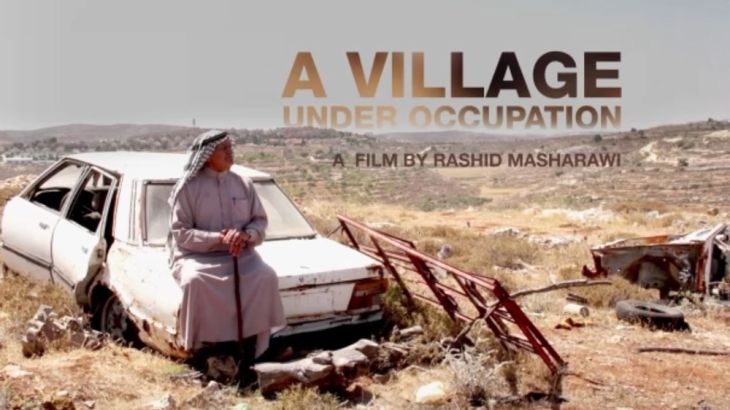
A Village Under Occupation
The story of the Palestinian village of Qaryut and its struggle to deal with attacks by nearby Israeli settlers.
FILMMAKER: Rashid Masharawi
A Village Under Occupation is the story of the Palestinian village of Qaryut in the occupied West Bank which residents say comes under regular attack by nearby Israeli settlers. It’s also been designated an archaeological site by the Israeli government in a move that villagers say is simply a ploy to get them off their land.
In December 2016, the United Nations Security Council condemned Israeli settlements on Palestinian territory occupied since 1967, including East Jerusalem, as having “no legal validity”. It demanded a halt to “all Israeli settlement activities”.
The occupation changed the pattern of our lives as farmers and land owners.
Israel then announced plans for 3,000 new settlement homes in the two weeks following the inauguration of US President Donald Trump.
Bashar Muammar is a young activist who quit his job to document Israeli aggression towards Qaryut, full-time. He’s been arrested and beaten several times – but still rides his horse daily around the area to make the Palestinian presence known.
“The horse goes around the whole area and annoys the settlers. Each round is to show them we are here,” he says.
Besides documenting Israeli aggression, he and 25 others serve as volunteer paramedics for the Red Crescent.
“I expanded the Red Crescent to the nearby villages – Jaloud, Qusra and Qablan – to cover all the area, especially the southeast of Nablus where it’s all settlements,” says Muammar.
“Settlers often attack people, so I devoted myself to this humane mission. We need a health centre and field team to help.”
|
|
His friend Munthir Qaryuti is a local artist who highlights the plight of his people through art. He focuses on the idea and image of a masked figure.
“I believe it’s the answer to our problems, not the leaders or negotiators … we think all Palestinians should put on masks and go into the streets,” says Qaryuti.
Other villagers reveal how 50 years of Israeli occupation have affected their lives.
“The occupation changed the pattern of our lives as farmers and landowners,” explains Muhammad Abu Najm, an elderly local farmer.
“The whole family was involved in the daily labour,” he says. The annual harvest used to sustain the family from generation to generation. Now, “we no longer enjoy ourselves, go freely to our land or serve it in a way that it enables us to live off of it,” says Najm. “The land is our sole source of our making a living.”
Another local farmer, Farhan Abbas, organises his family into round-the-clock shifts to protect their home from settler aggression.
“It’s as if we’re in a battlefield,” he says. “When a villager goes to work and leaves his children at home, he remains worried … so we guard the house until he comes home later.”
|
|
“In the afternoon, we get together and protect the houses. Some people sleep while others keep watch until the morning,” explains Abbas.
He’s anxious to avoid the fate of his neighbour whose house was burned down by settlers while the Israeli army arrested anyone in the village who might have come to the rescue.
“They [the settlers] could come at any time and throw Molotov cocktails at our houses, break our windows and beat our children. The women and children are terrified,” says Abbas.
Settlers have also torched the villagers’ olive trees, one of their staple crops.
“But it’s not just about olives,” Najm stresses. “They throw them out, burn and cut them. They want the land, not the trees or people. They want the land, but it’s our pride, our lives. We’re from the soil. We want to be buried in our earth when we die,” he says defiantly.
To make things worse for its residents, Qaryut has been designated an archaeological site, with plans to build a visitor centre, conference facilities, a cinema, shops and gardens at its ancient ruins to attract tourists.
The villagers say the site is Palestinian and that there’s no proof of any links to Jewish history. They claim that it’s a government ploy to steal more land.
Bashar and the residents of Qaryut will, nevertheless, continue to resist Israeli settler and government pressure as long as they possibly can.